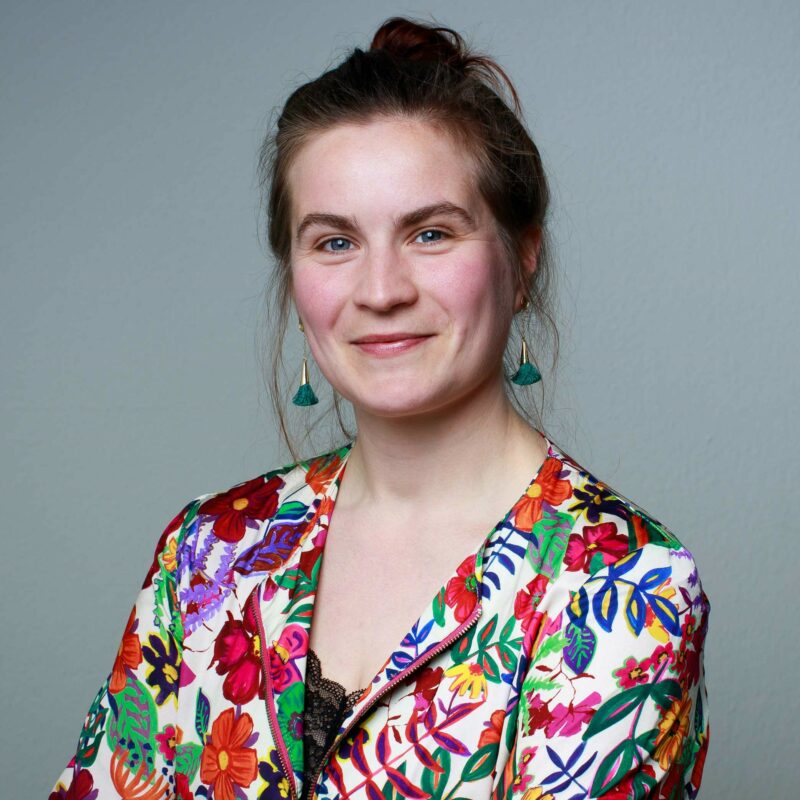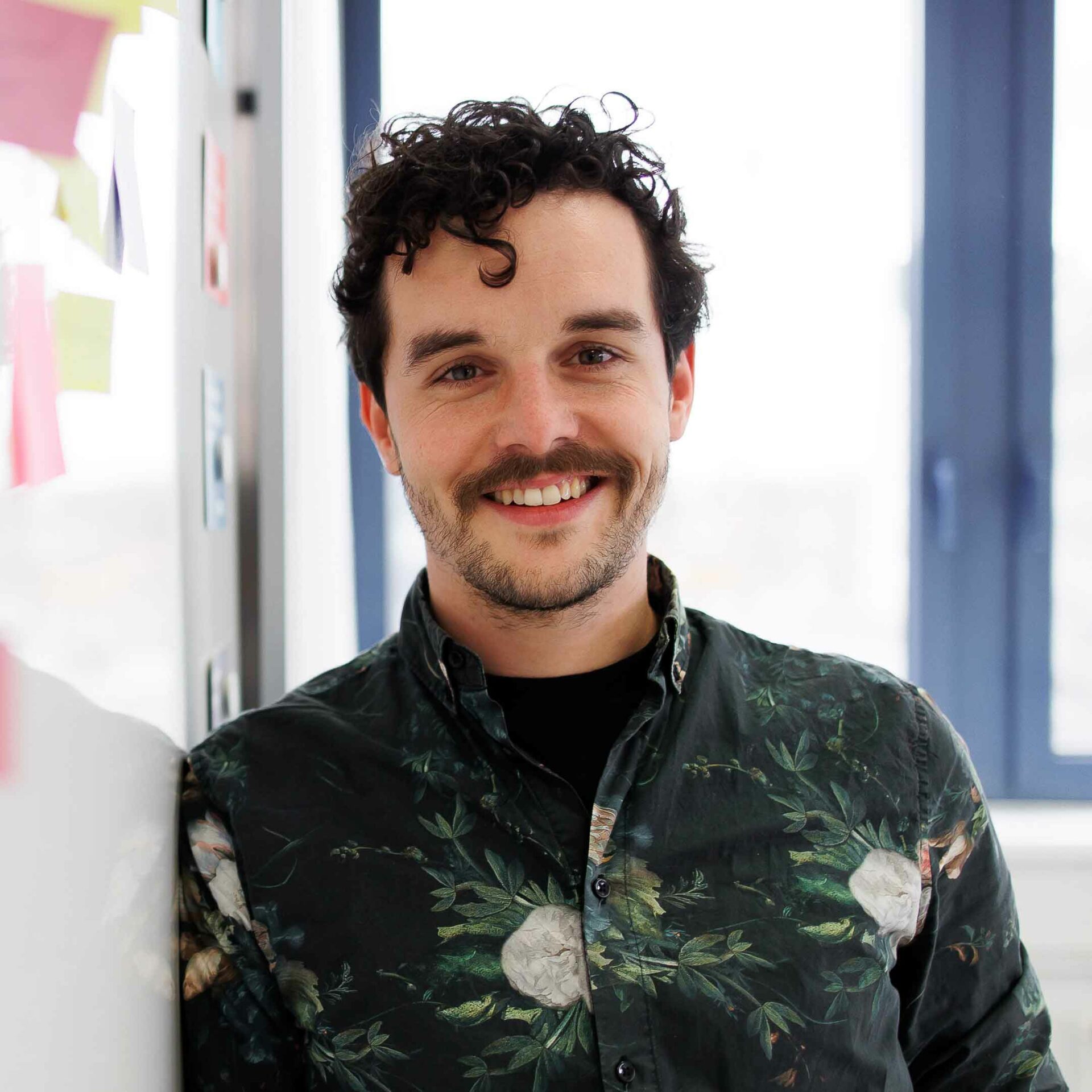Research Incubator

The research incubator has two central areas of responsibility. It develops and tests innovative formats and methods for science and research in order to promote cross-divisional networking and interdisciplinary collaboration. It also continuously identifies relevant research topics. In a first iteration, relevant research topics were systematically identified for the research programs between 2019 and 2021.
The topic identification process is characterized by a continuous alternation between collecting and condensing findings and is oriented to the Double Diamond, a framework structure for innovation according to the UK Design Council. An elementary part of this is the structured change of perspective by alternately opening and closing the process, i.e. the targeted consideration of both quantitative and qualitative aspects in an iterative and participative process.
“Even before the research begins, it is important for us to see which topics are important to people. What do experts say, but also what moves citizens in the area of digitization?”
Dr. Josephine B. Schmitt,
Scientific coordinator
Contact
Dr. Josephine B. Schmitt

Scientific coordinator
josephine.schmitt@cais-research.de
Topic identification and topic monitoring
Process overview
CAIS is looking for topics for upcoming research programs
In a structured process, we are sounding out potentially important topics for digitization research at CAIS. From these, the topics for the CAIS research programs will emerge starting in 2021.
Delphi Study
What do experts think about digitization research?
CAIS surveyed scientific experts in NRW in a Delphi study. The results will help to organize future research in the field of digitalization and artificial intelligence.
Automated text analysis
Which digitization topics are set politically and socially?
To find clues to potentially important topics in digitization research, CAIS conducted an automated content analysis of trend-setting text documents. An insight into the process and the findings.
Expert discussion
Which topics are relevant from the perspective of researchers?
In group discussions with experts in digitization research from various disciplines, further possible research topics for the CAIS were identified.
Online survey
What digitization topics move society?
In a clearly structured process, we sound out topics for the research programs and research projects of CAIS. One of the final building blocks for this is the implementation of a broad-based online survey.
Digital Topic Sprints and Citizen Science
Co-creative opening of the topic identification process
As an important part of the topic identification process for the CAIS research programs, the topic sprints are a participatory format at the end of the clearly structured process.
Topic identification and topic monitoring
Agile science
“New Work” in Research?
The diversity and dynamics of digital change are also affecting the science system. How is science responding to the associated upheavals? To what extent can citizens be involved in the research process and can their needs be taken into account? How can topics be identified and innovative research questions developed? How can results be shared with societal actors in a practical way in order to highlight problematic developments and enable rapid reactions?
Expert discussion
Interdisciplinarity as a Challenge for Digitalization Research?
With regard to the organizational design of interdisciplinary research programs, expert:in discussions with researchers were conducted at CAIS.
News from the project
- Schmitt, J. B., Kohne, J., & Breuer, J. (2023). Einführung: Digitalisierungsforschung. Wie wir die digitale Transformation wissenschaftlich erfassen können. easy_social_sciences, 68, S. 4-11. doi: 10.15464/easy.2023.01
- Simon, S. T. & Schmitt, J. B. (2023). Agile Science: Co-Creating Research on Digital Transformation. easy_social_sciences, 68, S. 12-20. doi: 10.15464/easy.2023.02
- Bieber, C. & Schmitt, J. B. (2020). Künstliche Intelligenz, Open Science, Nachhaltigkeit, agile Wissenschaft. CAIS-Forschungsinkubator entwickelt Pfade zur interdisziplinären Digitalisierungsforschung. Abrufbar unter https://www.digitalstrategie.nrw/digitalnrw/de/journal/51354/post/42/title
- Bieber, C. & Schmitt, J. B. (2020). Labor der Digitalisierungsforschung: Der Forschungsinkubator am Center for Advanced Internet Studies. In Prinzing, M., Debatin, B. & Köberer, N. (Hrsg.). Kommunikations- und Medienethik reloaded? Wegmarken für eine Orientierungssuche im Digitalen (S. 309-316). Baden-Baden: Nomos Verlagsgesellschaft mbg & Co. KG.
Schmitt, J.B., Goldmann, A., Simon, S.T. et al. (2023). Conception and Interpretation of Interdisciplinarity in Research Practice: Findings from Group Discussions in the Emerging Field of Digital Transformation. Minerva (2023). https://doi.org/10.1007/s11024-023-09489-w
- Simon, S. T. (2023, Mai). Agiles Forschen 101 – Buzzwords entzaubern und anwenden lernen. Workshop im Rahmen des Qualifikationsprogrammes Digitalisierungsforschung der deutschen Institute für Digitalisierungsforschung (CAIS, bidt, Weizenbaum Institut)
- Bieber, C. & Simon, S. T. (2021). Interdisziplinarität in der Digitalisierungsforschung, Workshop im Rahmen der Veranstaltungsreihe Quo vadis Digitalisierungsforschung? – Summer School, des Graduiertenkollegs NRW Digitale Gesellschaft, 14.09.2021
- Schmitt, J. B., Goldmann, A., Simon, S. T., & Bieber, C. (2021, November). Interdisciplinarity: Challenge or opportunity? Findings from group discussions among digitalization researchers. Vortrag im Rahmen des Workshops „Benefits and challenges of collaboration in research. Investigating the manifold aspects of mono-, inter- and transdisciplinary collaboration“.
- Simon, S. (2022). Applied Design Thinking in Research & Learnings for Agile, Participatory Processes. Vortrag im Rahmen der MENA Digital Summer School der Staatskanzlei NRW, 29.09.2022, Bochum.
- Simon, S. T., Schmitt, J. B., Bieber, C. (2022). Co-creative and participatory interdisciplinary research methods. Vortrag auf der Tagung “Exploring Socio-Technical Research”, 23.09.2022, Dresden.
- Simon, S. T. (2021). Agile & partizipative Wissenschaft am CAIS. Der Forschungsinkubator als Best Practice Beispiel, Vortrag auf der Jahrestagung „NewWork@Science“ des Zentrums für Wissenschaftsmanagement Speyer e.V., 04.10.2021
- Simon, S. T. (2021). Design Thinking für eine Agile Wissenschaft, Workshop im Rahmen der Veranstaltungsreihe Agile Methoden des PhDnet@CAIS, 04.05.2021
- Simon, S. T. (2021). From Ego to Eco. Systems Thinking for Sustainable Speculative Design, Vortrag im Rahmen der Konferenz Anticipatory Governence: Exploring Social Imaginaries, 29.06.2021
- Simon, S. T. (2021). Interdisciplinarity: Challenge or Opportunity? Vortrag auf der Tagung “Benefits and challenges of collaboration in research.” des DZHW (Deutsches Zentrum für Hochschul- und Wissenschaftsforschung)., 04.11.2021
- Simon, S. T. (2021). Partizipative Digitalisierungsforschung, Workshop auf der Tagung „Re-Thinking/Re-Configuring Participation. Neue Formen von Inklusion und Exklusion in der wissenschaftlichen Wissensproduktion?“ der Gesellschaft für Wissenschafts- und Technikforschung e.V., 18.11.2021
- Simon, S. T. (2021). Peculiar Thinking: Re-Framing Challenges, Vortrag im Rahmen der Konferenz Creative Approach Summit, 27.03.2021
- Simon, S. T. (2020). A Playground for Agile Academia, Vortrag auf der Konferenz #CMPRSSD im Rahmen des Nürnberg Digital Festival, 20.11.2020
- Simon, S. T. (2020). Creativity & Innovation Tools: Maneuvering Uncertainty in Scientific Research, Vortrag am CAIS im Rahmen des Forschungsinkubators, 26.11.2020
- Simon, S. T. (2020). Innovation Methods for Academic Research, Vortrag an der Universität Bremen, 27.11.2020
Team Research Incubator
Between 2018 and 2021, the following individuals were instrumental in the Research Incubator: Prof. Christoph Bieber, Dr. Matthias Begenat, Maximilian Brenker, Anne Goldmann, and Daniel Zimpel.

